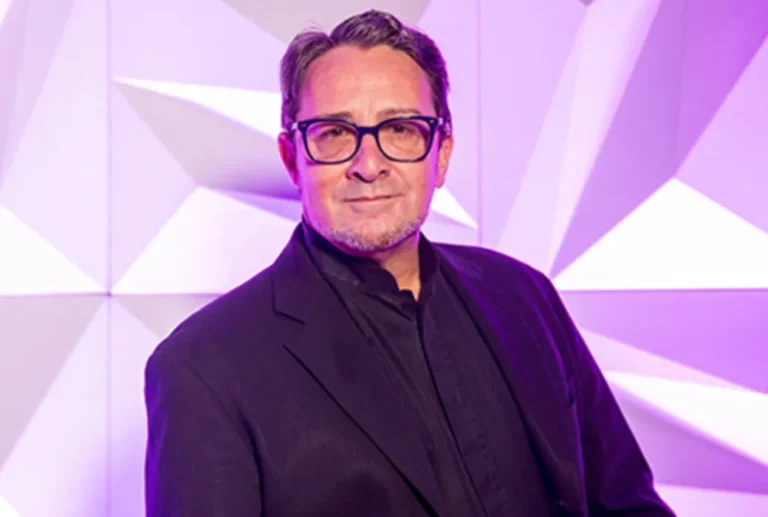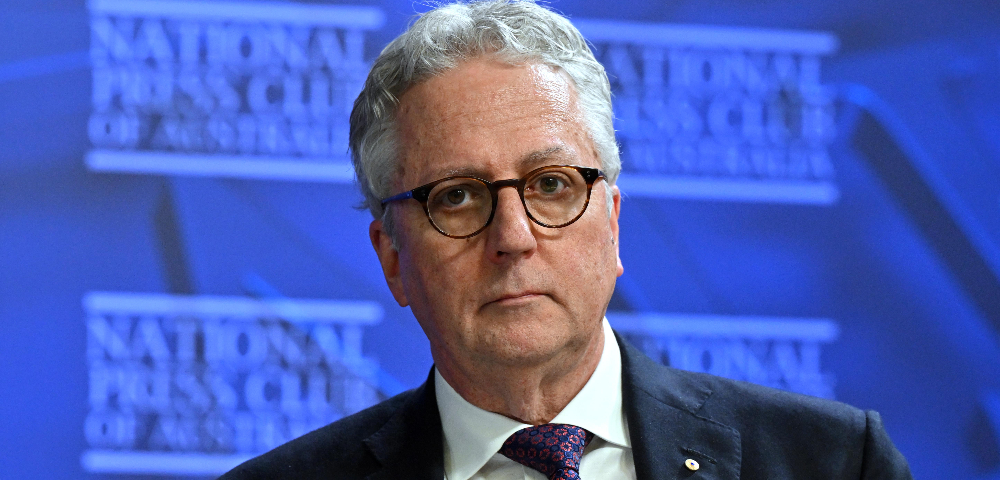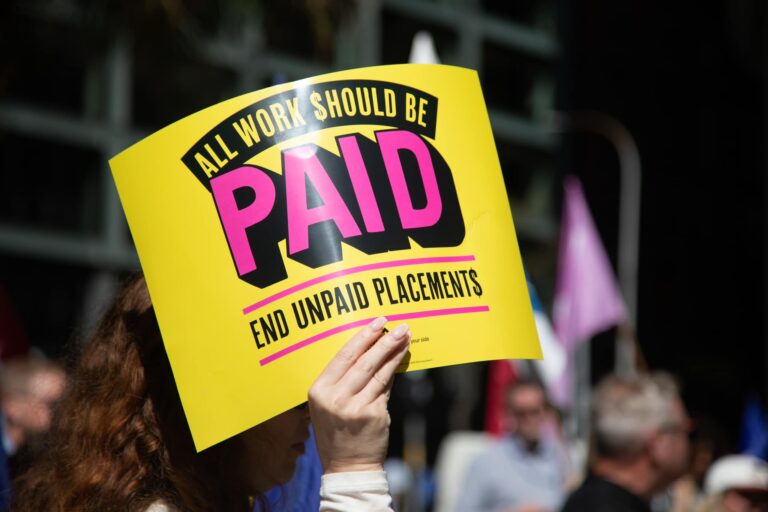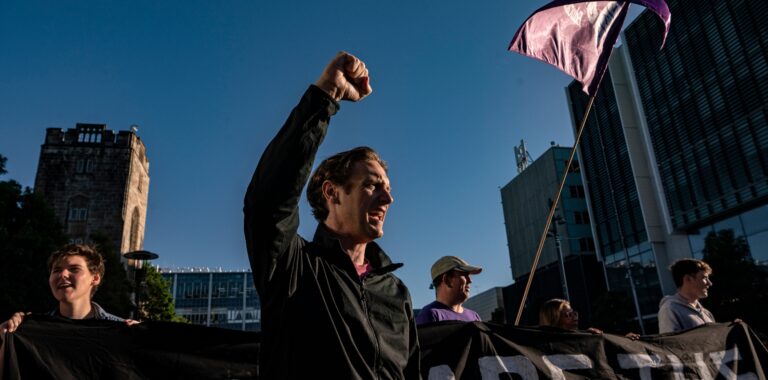
USyd sexual misconduct report reflects industry-wide failures to address sexual harm

BY ROBBIE MASON
Content warning: This article contains mentions of hazing and sexual assault.
The University of Sydney (USyd) published a standalone report on university-related sexual misconduct for the first time this week, providing startling proof that sexual incidents are increasing at the historic sandstone institution.
The Annual Report on Sexual Misconduct, released on Monday, reveals there were 121 incidents of sexual misconduct involving university staff and students in 2022. There were 74 cases of sexual assault and 47 instances of sexual harassment.
In an email to students and staff, Vice Chancellor Mark Scott wrote, “given the considerable doubt surrounding the university’s efforts in this area, this report is a significant opportunity to reaffirm our commitment.”
The response among students and anti-sexual assault activists has been noticeably more lukewarm, if not scathing.
Sharna Bremner, founder and director at End Rape on Campus (EROC) Australia gave “big kudos” to Sydney University “for actually releasing the report”.
Following the ground-breaking 2017 Change the Course report, published by the Australian Human Rights Commission, 39 Australian universities agreed to improve transparency in sexual misconduct reporting. As recent media reports have revealed, however, only one quarter of those universities are publicising information on campus-related sexual violence in a clear manner.
Prior to the sexual misconduct report released on Monday, Sydney University had incorporated sexual violence data into its broader annual report.
“We’ve seen university administrators and management shirk their responsibility across the board for a very long time,” Bremner said.
“Universities have generally viewed sexual assault and harassment as PR problems to be managed as opposed to issues of student and staff welfare.”
Rates of sexual violence on campus and at university-affiliated events are almost certainly far higher than the Sydney University report suggests due to underreporting. According to the 2021 National Student Safety Survey (NSSS), only 5.6 percent of student sexual assault victims and survivors reported the incident to their respective university.
Part of this comes down to a lack of knowledge of complaints processes. The 2021 NSSS revealed that 56.9 percent of students know almost nothing about where to go and who to talk to following an incident of sexual misconduct. But minimal awareness is not the sole cause.
As Bremner pointed out, “underreporting can be attributed to the fact that students don’t actually trust the universities processes.”
Across a number of reports that have attracted substantial media attention in recent years, concerns over the confidentiality of complaints and resolution processes has been a salient theme.
Iggy Boyd and Alev Saracoglu, Women’s Officers at the USyd Students’ Representative Council (SRC), said the report is “alarming” proof of the “failing of university management”.
“It doesn’t come close to capturing the real extent of sexual violence on campus”, they stated on behalf of USyd’s Women’s Collective
“Instead it paints a picture of the inadequacy of the sexual violence reporting systems available to students on campus.”
To emphasise the point, Boyd and Saracoglu cited figures from the 2021 National Student Safety Survey (NSSS) which showed that 1.5 percent of Sydney University students had endured sexual assault in the 12 months prior to the study.
“That’s 1161 incidents of sexual assault. Very few students were on campus in that period due to COVID, so now that students have returned these numbers will absolutely have increased. The uni receiving only 121 reports of sexual assault and sexual harassment on campus demonstrates just how few students are reporting their incidents on campus to the university.”
All talk, little action, critics say
While Bremner is congratulatory of the efforts of Sydney University management, she told City Hub that she wants to see the university go further in future reports. Noting that the report includes references to penalties for perpetrators, she expressed concern that the document does not specify the nature of those repercussions.
“It’s really important that that kind of information is made public too because it helps to foster trust in the university’s reporting processes. It also sets a really clear message about how seriously the university takes this.”
Bremner told City Hub that Sydney University’s unwillingness to share that information has made her “question their full commitment to transparency”.
Like Bremner, Audrey Mims, Chair of the STOP Campaign, expressed frustration that reports continue to highlight an already-proven issue while there is little tangible action and few signs of industry-wide reform.
“Students and staff have been raising the alarm for years,” Mims stated.
“What is most frustrating for us as student activists – many of whom have lived experience of sexual violence in tertiary learning contexts – is that while institutions give platitudes about ‘needing to do better’, this doesn’t translate into tangible, peer-led primary prevention work.”
Mims, Bremner, Boyd and Saracoglu all told City Hub that they want to see federal oversight of universities and the establishment of an independent, expert-led taskforce.
In July this year, a wide range of student representative bodies, advocacy organisations and women’s support services penned an open letter to the Albanese government demanding the implementation of an independent authority.
Bremner explained, “it has become very apparent to us that without oversight and without consequences, universities are not willing not act on this.”
Only weeks ago, Universities Australia, the peak body representing the nation’s tertiary education sector, scrapped a $1.5 million communications sexual consent campaign, allegedly under pressure from a minority of unhappy university chiefs.
Universities Australia chief executive Catriona Jackson faced a barrage of hostile questions at the final hearing for a Senate inquiry into consent laws last month, and only participated after twice declining to appear. The body has proven reticent and sometimes uncooperative in addressing on-campus safety.
Critics have demanded a radical overhaul of the university sector and highlighted the systemic factors contributing to rising sexual misconduct within university spaces.
The USyd Women’s Collective stated, “among the root causes of sexual violence on campus is the corporatisation of the university which consistently puts profits before the wellbeing of staff and students, and which intentionally under reports for fear of being labelled a ‘rape university’, impacting its branding and student intake.”
“We see the only real solution to this being to make education free and to forgive student debt.”
Jenny Leong, Greens Member for Newtown and Spokesperson for Women, told City Hub, “transparency alone will not dismantle the toxic culture of misogyny and sexual violence”
Sydney University’s sordid history of campus misbehaviour
According to USyd’s Annual Report on Sexual Misconduct, students are the most common target for sexual violence at Sydney University. Over 100 of the complaints and disclosures came from current students.
Boyd and Saracoglu from USyd’s Women’s Collective emphasised the prevalence of sexual misconduct with clubs and societies and student accommodation spaces.
They described the university’s residential colleges – long criticised for their elitism, lack of diversity and brazen anti-social behaviour – as “hubs for misogyny and sexual violence”.

A series of high-profile investigations and reports have exposed an ingrained culture of disrespect for minority groups and harmful hazing rituals within residential colleges at USyd. Despite a commissioned one million dollar review laying bare the failings of the college system in 2017 – the Broderick Review into Cultural Renewal at Residential Colleges – and attempts at reform, USyd colleges have continued to make headlines for the unsavoury behaviour of enrolled residents.
In 2020, one media report published evidence of sexual assault, public defecation in common areas, unsafe hazing rituals, misogyny and “white power” graffiti on the grounds of St Andrew’s College – a residential college at Sydney University.
Only just this year, in February, the USyd student newspaper Honi Soit reported that students from St Andrew’s College had engaged in sexist, homophobic and intimidating behaviour during Welcome Week events. The accusations resulted in the expulsion of St Andrew’s students from inter-college events.
MP Jenny Leong said, “like too many universities, Sydney University has a long history of toxic behaviour and sexual violence on campus, and it’s deeply disturbing that reports of assault have increased.”
“Universities have a responsibility to ensure that everyone feels safe on campus, but this report – and the many that have come before it – clearly demonstrate that Sydney University is failing.”
For years USyd students have campaigned to “abolish the colleges” and replace them with affordable student housing. But calls for “real action” have “fallen on deaf ears”, the USyd Women’s Collective stated.
“The absurdity of the Colleges’ recent media campaign around their ‘reform’ is the notion the Colleges’ culture, which has been in place for 167 years, could change in only a few years.”
MP Jenny Leong said the Greens back calls from student activists to abolish the colleges.
Boyd and Saracoglu concluded, “if USyd wishes to address sexual violence on campus in a meaningful way, they will need to work towards abolishing the Colleges, ending third party management of student accommodation and only ensuring Clubs and Societies all have much more expansive consent training and education programs run by students.”









